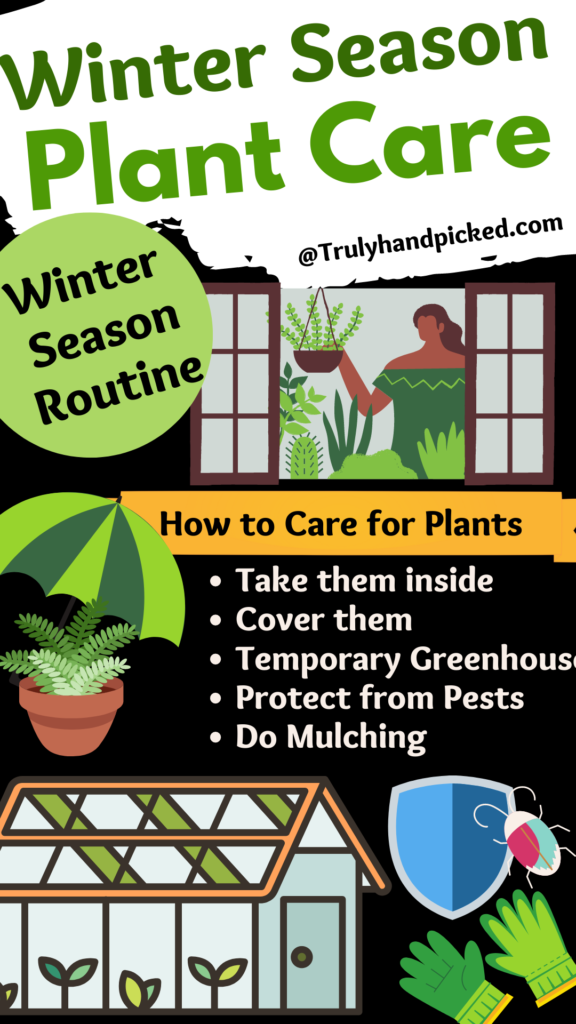Winter Plant Care: How to Guide

As the days grow shorter and the air crisper, winter's approach can send a shiver down any gardener's spine. But fear not, for winter doesn't have to be the grim reaper of your green sanctuary. Imagine you're tucking your plants in for a long, cozy nap. With the right knowledge and care, your plants can thrive even in the coldest months. So, let's dive into the ultimate guide on how to care for plants during winter months.
Understanding Winter Plant Care
Winter plant protection is not just about surviving the cold; it's about helping your plants remain healthy and strong. The first step is understanding that different plants have different tolerances to cold. Some, like pansies and violas, can brave the frost, while others, like succulents, prefer indoor coziness.
Know Your Plants
Do your research. Find out which of your plants are hardy and which are tender. Hardy plants can tolerate frost, while tender plants will need indoor plant maintenance during winter. The Royal Horticultural Society provides an excellent guide on plant hardiness.
Preparing Your Garden for Winter
Preparation is key in cold weather plant care. It's like planning a warm winter vacation; you wouldn't leave without packing your sweaters, right? Similarly, your plants need some prep before the cold sets in.
Mulch Matters
Apply a thick layer of organic mulch around your plants. This acts like a warm blanket, insulating the roots and protecting them from frost. It also helps retain moisture, which is crucial in winter.
Prune with Caution
Prune your plants judiciously. Dead or dying branches can harbor pests and diseases over winter. However, avoid excessive pruning as it can stimulate new growth, which is more susceptible to cold damage.
Indoor Plant Maintenance
Bringing your tender plants indoors? Welcome them to their winter home with proper care.
Light and Heat
Place your plants near a sunny window, but avoid direct contact with glass to prevent cold injury. Also, keep them away from heat sources like radiators, which can dry them out.
Water Wisely
Indoor plants need less water in winter due to reduced light and growth. Allow the soil to dry out slightly between waterings to prevent root rot.

Winter Gardening Tips
Winter doesn't mean the end of gardening. Here are some activities to keep your green thumb busy.
Plant Evergreens
Winter is an excellent time to plant evergreens. They provide year-round interest and structure to your garden. Plus, they can help insulate more tender plants.
Start a Compost Pile
Fall leaves and dead plants make excellent compost. Start a compost pile, and by spring, you'll have nutrient-rich soil for your garden.
Caring for Plants in Cold Seasons
Even in the coldest seasons, your plants need TLC. Here's how to provide it.
Check for Pests
Cold weather can drive pests indoors, so inspect your plants regularly. If you find any unwanted guests, treat them with an appropriate pesticide or homemade remedy.
Avoid Fertilizing
Most plants go dormant in winter, so they don't need extra nutrients. Fertilizing can force new growth, which is more susceptible to cold damage.

Special Care for Specific Plants
Different plants, different rules. Here are some specific winter gardening tips.
Succulents
Most succulents prefer dry conditions in winter. Water sparingly and provide plenty of light.
Roses
Prune your roses in late winter to encourage spring growth. Also, mound soil around the base to protect the roots from frost.
Conclusion
Winter plant care doesn't have to be daunting. With a bit of understanding, preparation, and ongoing care, your garden can survive—even thrive—during the cold months. So, embrace the season, roll up your sleeves, and let's make winter work for our gardens.
Remember, every plant is unique, just like every gardener. So, experiment, learn, and most importantly, enjoy the process. After all, gardening is a journey, not a destination.
Happy winter gardening!
FAQs
Should I water my plants less in winter?
- Yes, most plants need less water in winter due to reduced light and growth. Allow the soil to dry out slightly between waterings.
Can I fertilize my plants in winter?
- It's generally best to avoid fertilizing in winter as most plants are dormant and don't need extra nutrients.
How do I protect my outdoor potted plants in winter?
- You can insulate pots with bubble wrap or move them to a sheltered spot. For tender plants, consider bringing them indoors.
What should I do if my plant gets frost damage?
- Don't prune frost-damaged plants immediately. Wait until new growth starts in spring, then prune back any dead parts.
Can I still grow vegetables in winter?
- Yes, many vegetables like spinach, kale, and Brussels sprouts can tolerate cold weather. You can also use cold frames or row covers for added protection.
0 Response to "Winter Plant Care: How to Guide"
Post a Comment